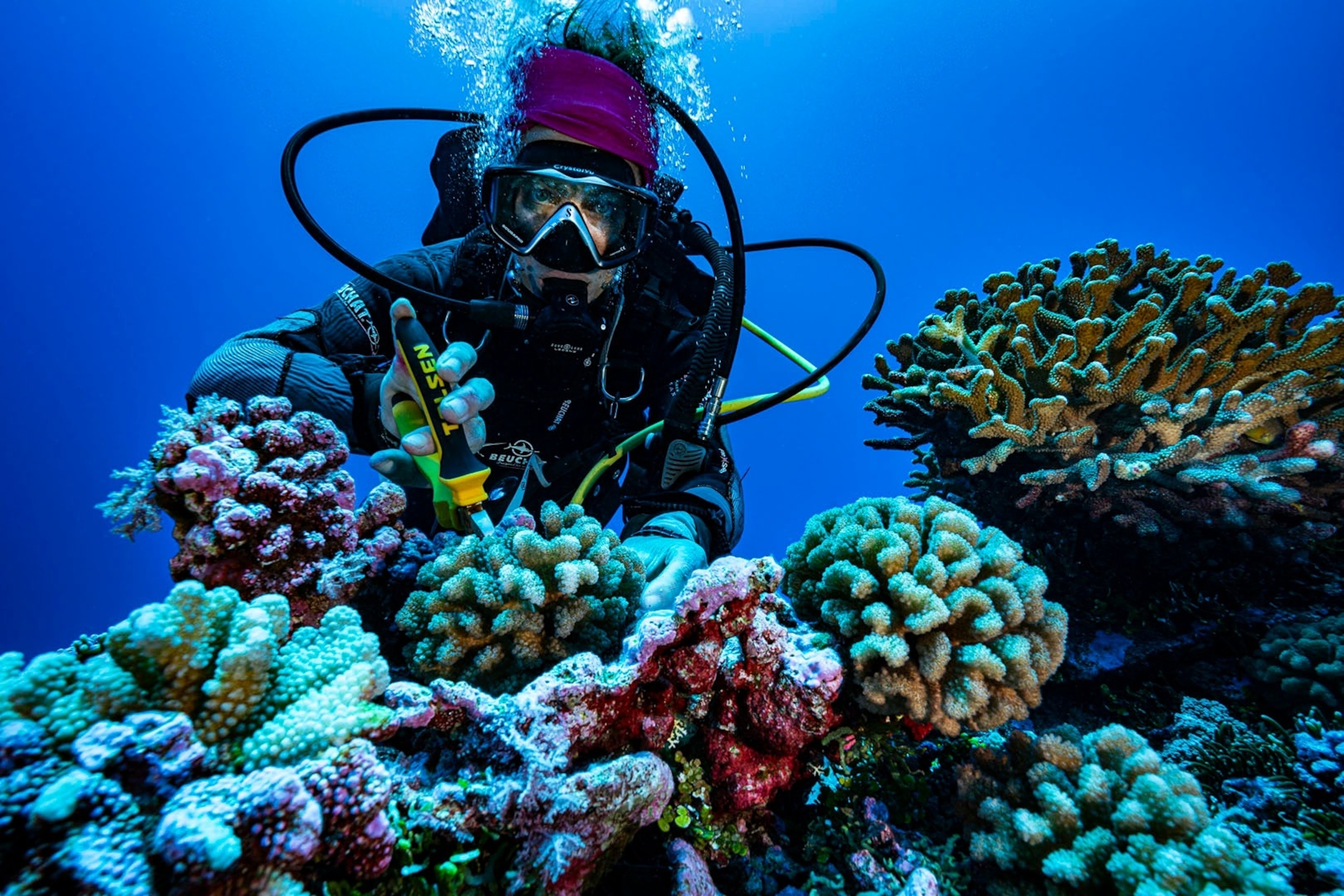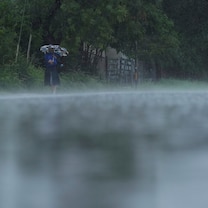Thermoresistant 'super corals' offer hope amid climate change: Scientists
Researchers said they discovered a coral that can survive extreme heat stress.
A possible "biological treasure chest" of corals located in an underwater lagoon off a remote island in the South Pacific appear to be surviving extreme heat stress caused by climate change, scientists say.
In the pristine waters off a French Polynesian island in the South Pacific, a team of marine biologists believes it has made a "miracle-like" discovery -- a type of coral which can survive in abnormally warm water.
The coral lives in a semi-enclosed underwater lagoon, within which the water temperature is significantly higher than the swirling South Pacific Ocean beyond.

The lagoon is situated off the remote island of Tatakoto, and in the warmest month of March, water temperatures can reach a sizzling 95 F (35 C) which is about 7 F to 9 F (4 C or 5 C) higher than the wider ocean, according to France's National Scientific Research Center (CRNS), which is behind the study.
In extreme heat events, which scientists say have become more frequent around the world because of our planet's changing climate, abnormally warm water temperatures can "bleach" corals, which are a vital food source and habitat for a vast array of marine organisms.
Bleaching means the coral loses the algae living in its tissues, turning it white. Coral struggles to survive in this state.
The warming of seas and oceans, which scientists say is primarily driven by human-amplified climate change, has contributed to the death of large areas of coral reef right across the globe, putting fragile underwater ecosystems at risk.
For four years, the team of marine biologists led by Dr Laetitia Hédouin -- in a joint partnership with the marine research non-profit 1ocean.org -- has been studying what they say are thermoresistant "super corals" living and "thriving" inside the abnormally warm lagoon off Tatakoto.

Hédouin told ABC News that she and her colleagues are carrying out further studies on the corals, but she is already confident the corals seem to have developed some type of "biological mechanism" that helps them survive.
Last year, French Polynesia experienced a "super long and super strong" marine heat wave that bleached other coral reefs elsewhere in French Polynesia in less extreme water temperatures, according to Hédouin.
It was "almost like a miracle" that the corals survived in the lagoon, because the sea water there is "way warmer" than the ocean outside, Hédouin said.
The aim of the mission is to study whether the so-called super-resistant corals can live and reproduce in new environments outside of the warm lagoon, and potentially survive extreme heat events that have bleached other corals.

The mission has the backing of UNESCO, the lead U.N. agency on ocean research. UNESCO described the corals found in the lagoon as "remarkable specimens" and said the study in French Polynesia could pave the way for the development of "new strategies to repopulate coral reefs worldwide."
Hédouin and her team have planted cuttings of the heat-resistant coral from the lagoon in another area of the archipelago to see if they can adapt and thrive in a more typical environment where the sea temperature is lower.
If the corals from Tatakoto can survive being moved -- a process known as "assisted migration" -- then scientists behind the project hope the island could become "a biological treasure chest" of heat-resistant corals that would help restore damaged reefs elsewhere in the world.

The project is being documented by French underwater photographer and 1ocean.org founder Alexis Rosenfeld, who described the lagoon off Tatakoto as a symbol of hope because it represented what he said is humankind's ability to "live better" with nature.
Rosenfeld said he and his team were documenting this project and others like it through photos and film to "build awareness" of the need to protect fragile ecosystems in our oceans and seas.



